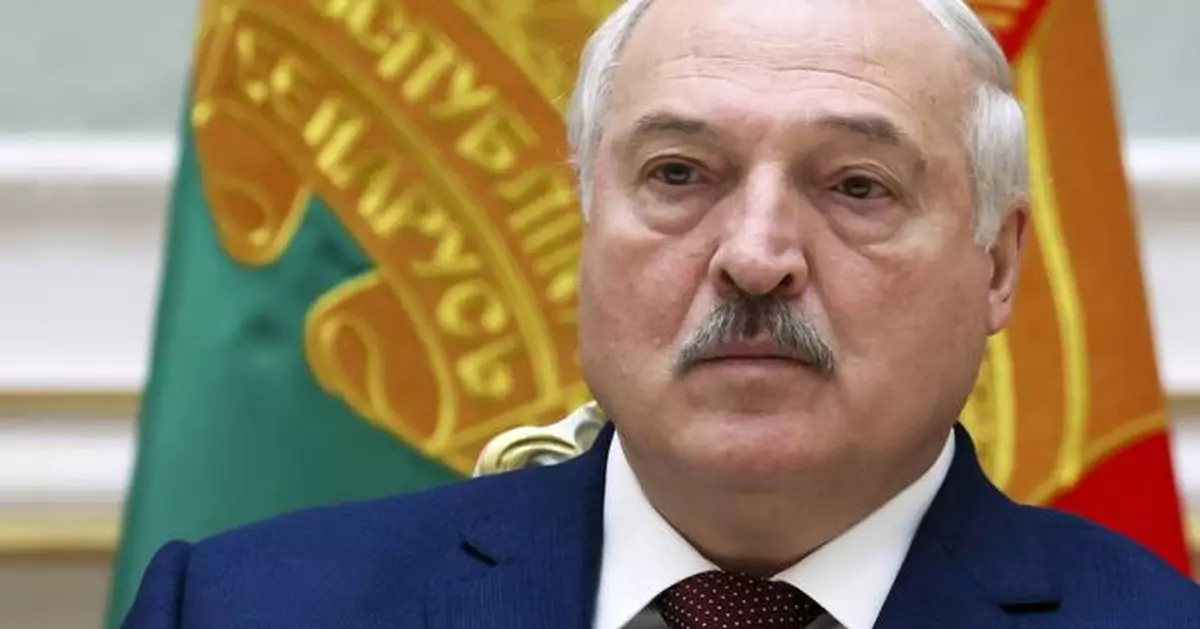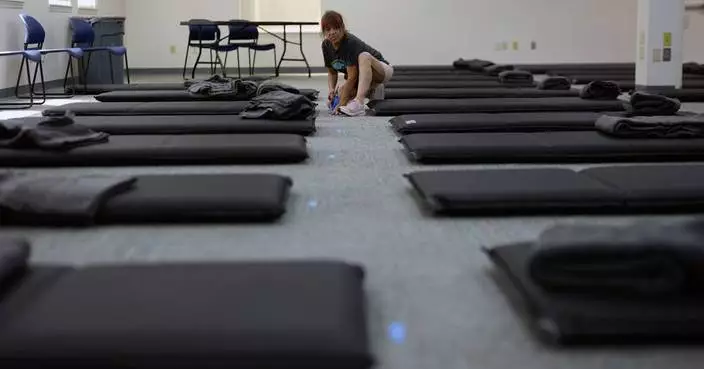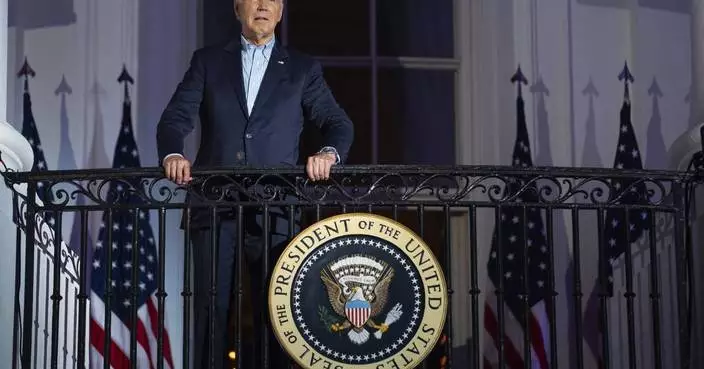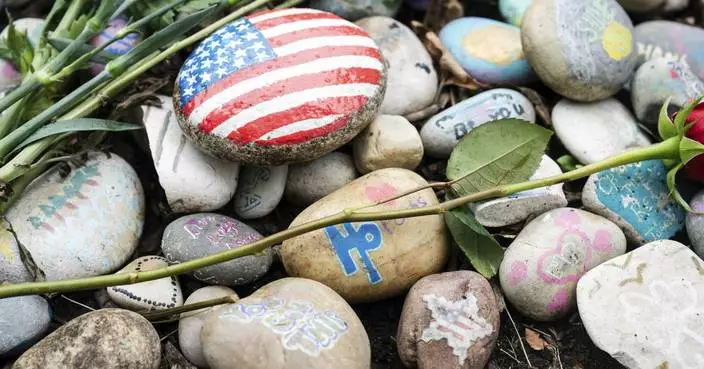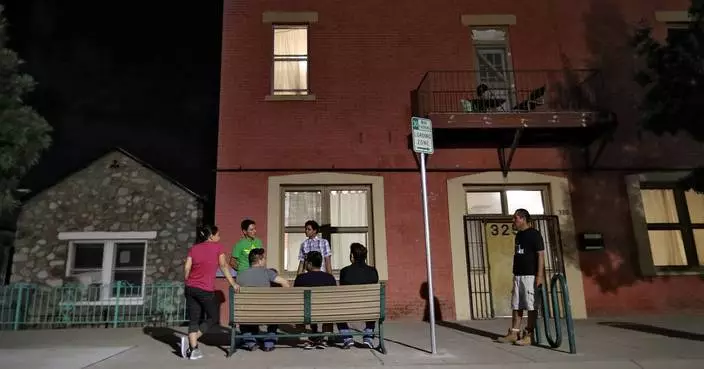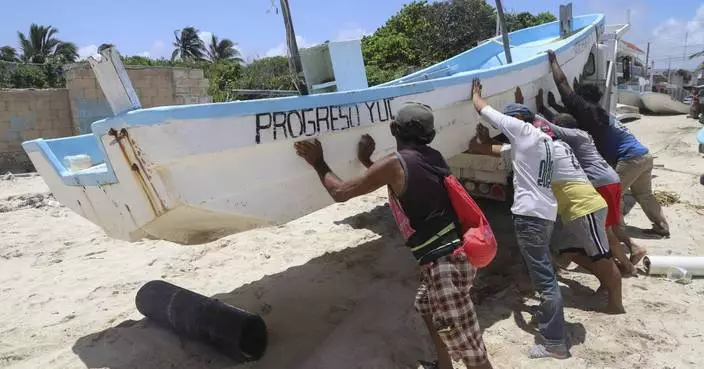TALLINN, Estonia (AP) — A prominent Belarusian opposition politician suffering from a severe form of cancer was released Wednesday from prison, his son-in-law said, three years after his arrest in the crackdown on dissent by the country's authoritarian ruler, Alexander Lukashenko.
Ryhor Kastusiou's release came a day after President Lukashenko announced he would free seriously ill political who were jailed in the 2020 protests against his rule, including those who were “breaking up the country and tearing it apart.”
The protests rocked Belarus after Lukashenko's disputed reelection to a sixth term in office. Since first taking office in 1994, Lukashenko has persistently stifled opposition.
During the crackdown following the vote, more than 35,000 people were arrested, thousands were brutally beaten in custody, journalists were jailed and dozens of independent news organizations and human rights groups were closed.
According to the Viasna human rights center, there are currently 1,409 political prisoners in Belarus, including Ales Bialiatski, who was awarded the Nobel Peace Prize in 2022. At least six have died behind bars, activists say.
The United Nations had appealed to Belarusian authorities over the health of Kastusiou, who ran against Lukashenko in the 2010 presidential elections.
Independent analyst Valery Karbalevich said Lukashenko's move may have come with the 2025 presidential election in mind.
“Lukashenko clearly wants to change his image as a cannibal," Karbalevich told The Associated Press. But even if "authorities release a dozen political prisoners and stop there, it will be a one-time action, a beautiful gesture, and not a sustainable political trend.”
According to Kastusiou's son-in-law, Dmitry Antonchyk, he arrived home and reunited with his wife, looking “tired but happy.”
Lukashenko, who spoke on the eve of Belarus’ Independence Day, did not say how many political prisoners would be freed.
“These are really seriously ill people, mostly with cancer," Lukashenko said on Tuesday. "We approach and treat everyone humanely.”
A Viasna representative, Pavel Sapelka told The Associated Press that as of the beginning of May, at least 254 political prisoners were known to be at particular health risk and 91 were in serious condition.
Belarusian prisons torture all political prisoners by depriving them of medical care and information from the outside world, Sapelka said.
“A healthy person in a Belarusian prison quickly becomes sick,” he said.
Exiled Belarusian opposition leader Sviatlana Tsikhanouskaya, whose husband Siarhei Tsikhanouski was sentenced to 19 1/2 years in prison, told the AP that 15-20 people are arrested every day in Belarus for political reasons and “the repression continues.”
“The urgent release of people in critical condition is not a political issue, but a humanitarian one,” Tsikhanouskaya said. “They should be released without any conditions.”
The U.S. State Department has called for the release of all political prisoners in Belarus.
“We honor the courage of the 1,500 Belarusian political prisoners held captive simply for trying to exercise the freedoms independence is supposed to convey," U.S. Secretary of State Antony Blinken said Wednesday in a statement to mark Belarus' Independence Day.
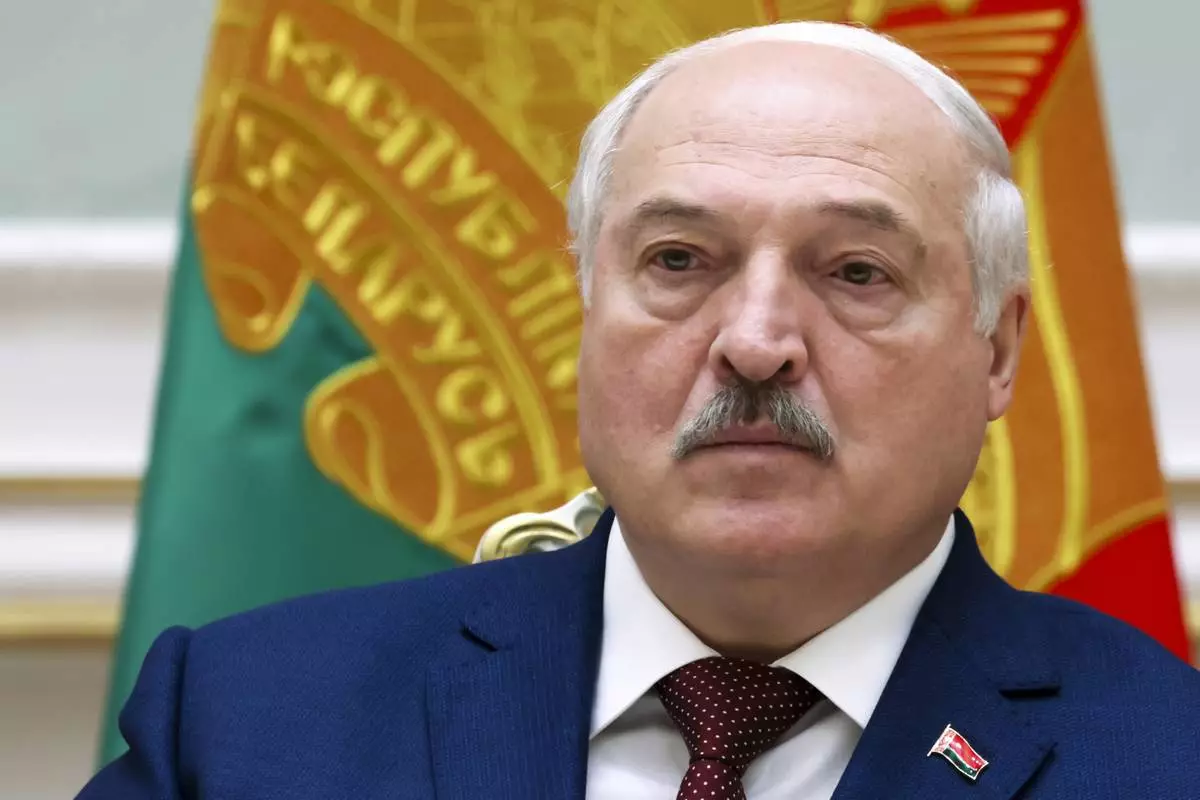
FILE - Belarusian President Alexander Lukashenko attends a joint statement with Russian President Vladimir Putin following talks at the Palace of Independence in Minsk, Belarus, on May 24, 2024. Lukashenko will attend the Shanghai Cooperation Organization summit in Astana, Kazakhstan. as his nation becomes a full member of the group. (Mikhail Metzel, Sputnik, Kremlin Pool Photo via AP, File)
MADISON, Wis. (AP) — The Wisconsin Supreme Court ruled Friday that officials can place ballot drop boxes around their communities in this fall's elections, overturning its own ruling two years ago limiting their use in the presidential swing state.
The court limited the use of drop boxes in July 2022, ruling then that they could be placed only in local election clerks' offices and no one other than the voter could return a ballot in person.
Conservatives controlled the court at that time, but Janet Protasiewicz's election victory in April 2023 flipped the court to liberal control. Seeing an opening, Priorities USA, a progressive voter mobilization group, asked the court in February to revisit the decision.
At least 29 other states allow for absentee ballot drop boxes, according to the U.S. Vote Foundation, and expanded use in Wisconsin could have major implications in the presidential race.
Wisconsin again figures to be a crucial swing state after President Joe Biden barely won it in 2020 and Donald Trump narrowly took it in 2016. Democrats believe that making it easier to vote absentee will boost turnout for their side.
The justices announced in March they would review the ban on drop boxes but wouldn't consider any other parts of the case. The move drew the ire of the court's conservatives, who accused the liberals of trying to give Democrats an advantage this fall. Democratic Gov. Tony Evers in April urged the court to again allow drop boxes.
The court ruled 4-3 on Friday that drop boxes can be utilized in any location.
Justice Ann Walsh Bradley, one of the court's four liberal justices, wrote for the majority that placing a ballot in a drop box set up and maintained by a local election clerk is no different than giving the ballot to the clerk, regardless of the box's location. Local clerks have great discretion in how they administer elections and that extends to using and locating drop boxes, she added.
"Our decision today does not force or require that any municipal clerks use drop boxes," Bradley wrote. “It merely acknowledges what (state law) has always meant: that clerks may lawfully utilize secure drop boxes in an exercise of their statutorily-conferred discretion.”
All three conservative justices dissented. Justice Rebecca Bradley wrote that the liberals are simply trying to advance their political agenda and criticized them for ignoring the precedent set by the 2022 ruling.
"The majority in this case overrules (the 2022 decision) not because it is legally erroneous, but because the majority finds it politically inconvenient," Bradley wrote. “The majority’s activism marks another triumph of political power over legal principle in this court.”
The popularity of absentee voting exploded during the pandemic in 2020, with more than 40% of all voters casting mail ballots, a record high. At least 500 drop boxes were set up in more than 430 communities for the election that year, including more than a dozen each in Madison and Milwaukee — the state’s two most heavily Democratic cities.
Trump and Republicans have alleged that drop boxes facilitated cheating, even though they offered no evidence. Democrats, election officials and some Republicans argued the boxes are secure and an Associated Press survey of state election officials across the U.S. revealed no cases of fraud, vandalism or theft that could have affected the results in 2020.
Republicans who control the Wisconsin Legislature intervened in the case, arguing that the justices should leave the 2022 ruling alone. Their attorney, Misha Tseytlin, didn't immediately respond to an email seeking comment Friday.
Matt Fisher, a spokesperson for the state Republican Party, called the decision a “setback.”
“This latest attempt by leftist justices to placate their far-left backers will not go unanswered by voters,” he said in a statement.
Republican National Committee Chair Michael Whatley weighed in as well, saying in a statement that the decision “gives Democrats a green light to dismantle election security safeguards and invite election fraud.”
Dane County Clerk Scott McDonell, who administers elections in the state's most Democratic county, called drop boxes a “common sense tool.” He said they make the election process more convenient and easier for rural and disabled voters and help reduce that number of ballots that arrive after election day too late to be counted.
“Having drop boxes in place for the 2024 elections in August and November will encourage civic participation in our democracy,” McDonell said in a statement.
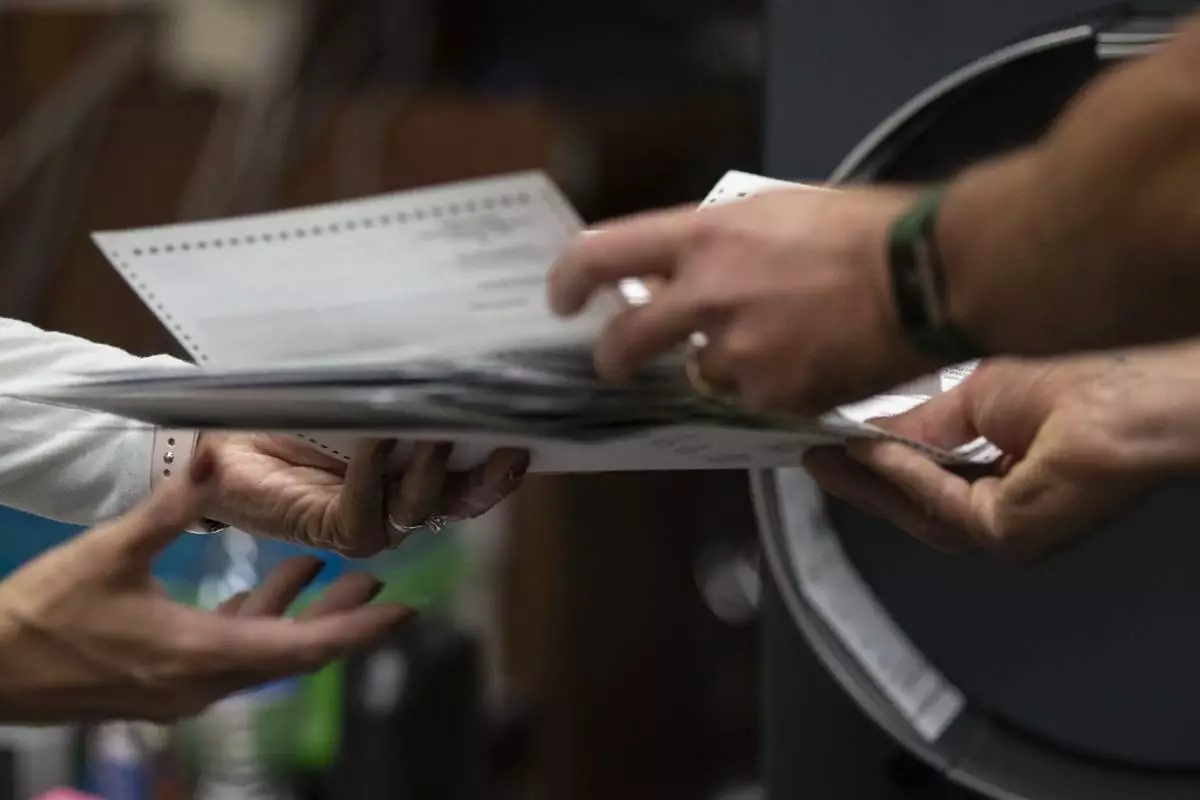
FILE - Poll workers sort out early and absentee ballots at the Kenosha Municipal Building on Election Day, Tuesday, Nov. 3, 2020, in Kenosha, Wis. The Wisconsin Supreme Court ruled Friday, July 5, 2024 that officials can place ballot drop boxes around their communities in this fall's elections, overturning its own ruling two years ago limiting their use in the presidential swing state. (AP Photo/Wong Maye-E, File)



